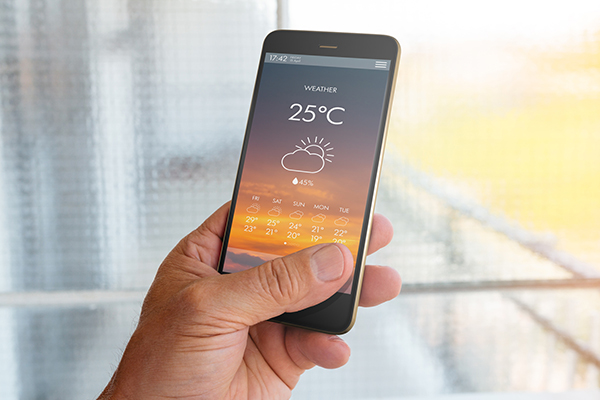
GOAL
I can make the soft T-H sound and the hard T-H sound.
soft T-Hの音とhard T-Hの音を発音できるようになる。

TRY IT!
They both don’t want to brush their teeth before bed.

SOUNDS
Sound Profile
 Voicing音の有無
Voicing音の有無no無声音
 Mouthくち
Mouthくちslightly openやや開ける
 Lips唇
Lips唇 Teeth 歯
Teeth 歯 Tongue舌
Tongue舌the tip of the tongue placed between the top and bottom front teeth舌の先端を上と下の前歯の間に置く
 Jaw顎
Jaw顎Steps
Slightly open your mouth.ややくちを開けましょう。
Put the tip of your tongue between your top and bottom front teeth. (Don't bite down!)舌の先端を上と下の前歯の間に置きましょう。(強く噛まないようにしましょう。)
Exhale.息を吐きましょう。

Katakana Otoshiana
Because there is no perfect match for the soft T-H sound in Japanese, many English words with that sound are written with s (ス) or even sh (シ) in katakana.
third ➡ saado (サード)
thank you ➡ sankyuu (サンキュー)
think ➡ shinku (シンク)
Be careful to make them the soft T-H sound in English!
日本語にはsoft T-Hの音がありません。そのためsoft T-Hの音が含まれる英単語はよくカタカナの「ス」や「シ」で表記されます。
third ➡ saado (サード)
thank you ➡ sankyuu (サンキュー)
think ➡ shinku (シンク)
英語でsoft T-Hの音を発音する時は気を付けましょう!
 Voicing音の有無
Voicing音の有無yes有声音
 Mouthくち
Mouthくちslightly open やや開ける
 Lips唇
Lips唇 Teeth歯
Teeth歯 Tongue舌
Tongue舌the tip of the tongue placed between the top and bottom front teeth舌の先端を上と下の前歯の間に置く
 Jaw顎
Jaw顎Steps
Slightly open your mouth.ややくちを開けましょう。
Put the tip of your tongue between your top and bottom front teeth. (Don't bite down!)舌の先端を上と下の前歯の間に置きましょう。(強く噛まないようにしましょう。)
Make a voiced sound.音を出しましょう。
If you hold the sound for several seconds, your top lip should feel itchy.音を数秒間出していると上唇がくすぐったくなります。

Katakana Otoshiana
Because there is no perfect match for the hard T-H sound in Japanese, many English words with that sound are written with z (ザ) or even d (ディ) in katakana.
the ➡ za (ザ)
brother ➡ burazaa (ブラザー)
this ➡ disu (ディス)
Be careful to make them the hard T-H sound in English!
日本語にはhard T-Hの音がありません。そのためhard T-Hの音が含まれる英単語はよくカタカナの「ザ」や「ディ」で表記されます。
the ➡ za (ザ)
brother ➡ burazaa (ブラザー)
this ➡ disu (ディス)
英語でhard T-Hの音を発音する時は気を付けましょう!
Steps
Slightly open your mouth.ややくちを開けましょう。
Put the tip of your tongue between your top and bottom front teeth. (Don't bite down!)舌の先端を上と下の前歯の間に置きましょう。(強く噛まないようにしましょう。)
Exhale.息を吐きましょう。
Steps
Slightly open your mouth.ややくちを開けましょう。
Put the tip of your tongue between your top and bottom front teeth. (Don't bite down!)舌の先端を上と下の前歯の間に置きましょう。(強く噛まないようにしましょう。)
Make a voiced sound.音を出しましょう。
If you hold the sound for several seconds, your top lip should feel itchy.音を数秒間出していると上唇がくすぐったくなります。

Katakana Otoshiana
Because there is no perfect match for the soft T-H sound in Japanese, many English words with that sound are written with s (ス) or even sh (シ) in katakana.
third ➡ saado (サード)
thank you ➡ sankyuu (サンキュー)
think ➡ shinku (シンク)
Be careful to make them the soft T-H sound in English!
日本語にはsoft T-Hの音がありません。そのためsoft T-Hの音が含まれる英単語はよくカタカナの「ス」や「シ」で表記されます。
third ➡ saado (サード)
thank you ➡ sankyuu (サンキュー)
think ➡ shinku (シンク)
英語でsoft T-Hの音を発音する時は気を付けましょう!

Katakana Otoshiana
Because there is no perfect match for the hard T-H sound in Japanese, many English words with that sound are written with z (ザ) or even d (ディ) in katakana.
the ➡ za (ザ)
brother ➡ burazaa (ブラザー)
this ➡ disu (ディス)
Be careful to make them the hard T-H sound in English!
日本語にはhard T-Hの音がありません。そのためhard T-Hの音が含まれる英単語はよくカタカナの「ザ」や「ディ」で表記されます。
the ➡ za (ザ)
brother ➡ burazaa (ブラザー)
this ➡ disu (ディス)
英語でhard T-Hの音を発音する時は気を付けましょう!

SENTENCES
/θ/
- Matthew thinks many athletes are too thin.
- Seth takes a bath every day.
- The Health Is Wealth event is on Thursday.
- He has thirty teeth in his mouth!
- Kathy got a thirteen on her math test.
/ð/
- My mother and father liked the cake.
- My brother is taller than other boys in his class.
- This kind of clothing was popular back then.
- The weather was nice, so my grandfather went fishing.
- They said that Just Breathe is the book of the year.
/θ/ + /ð/
- Agatha can’t breathe.
- This Thursday, we collected thirty bags of clothing.
- Matthew went to the Netherlands last month.
- That day, Anthony’s father gave them three hundred new books.
- Judith went shopping for cold weather gear on her birthday.

DIALOGUES
/θ/
| Tutor: | Keith! Thank you for inviting me to your birthday party last night. |
| Student: | You’re welcome! I’m glad you came. You were with Beth and Tabitha, right? |
| Tutor: | Yeah. We really liked your famous athlete theme! |
| Student: | Thank you! My party theme was Matthew’s idea. He likes taking pictures of athletes. |
/ð/
| Student: | My mother and father just got tickets to their favorite band’s concert. |
| Tutor: | Wow! That’s nice! When is the concert? |
| Student: | Tomorrow! It’s their first time to see them live, so they’re super excited! |
| Tutor: | Great! Are you going with them to the concert? |
| Student: | No, my brother and I are going clothing shopping tomorrow. |
/θ/ + /ð/
| Student: | My mother is angry with my brothers. |
| Tutor: | Both of them? What did they do? |
| Student: | Anthony didn’t want to take a bath, Seth didn’t want to do his math homework, and they both don’t want to brush their teeth before bed. |
| Tutor: | Oh! That’s bad! |
| Student: | I know! Their breath will smell bad, and they might lose their teeth! |

TRY IT AGAIN!
They both don’t want to brush their teeth before bed.

FEEDBACK
I can make the soft T-H sound and the hard T-H sound.
soft T-Hの音とhard T-Hの音を発音できるようになる。SCORING RUBRIC
|
4 |
3 |
2 |
1 |
|---|---|---|---|
|
You were able to produce today’s sounds very smoothly and naturally. Very well done! 本日の音を問題なく自然に発音できました。素晴らしいです。 |
You were able to produce today’s sounds with minimal difficulty. できました。上出来です。 |
You were able to produce today’s sounds but struggled a lot. We recommend taking 手こずりました。もう一度レッスンを 受けましょう。 |
You were unable to produce today’s sounds. Please take the もう一度レッスンを受けてください。 |
PERSONALIZED FEEDBACK
phonology
発音が相手にとって聞き取りやすいか phoneme
Is your pronunciation easy for the other person to hear?














